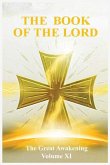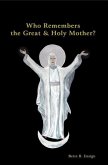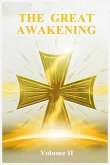The Great Intermission is a study of the shape of the Bible. It introduces a new perspective on the structure of the narrative, especially regarding the Old Testament. The governing idea is that the Canon of the Old Testament, then the Hebrew Scriptures, was completed in and around the dates of the Dead Sea Scrolls and that the order of placement of large sections of the narrative is intentional and revealing. This interpretive device can be called "postmodern" or even "neo-deconstructive" in the sense that it rejects the conventional point A-to-Point B historical point of view that takes the reader directly from the moment of creation to the exile in a linear fashion. Instead, the radical breaks in the narrative, i.e., the Flood, the Exodus, the Exile, and then the destruction of Jerusalem itself which is a part of historical facticity, are considered essential to any discernment of the spiritual, philosophical, and pastoral meaning and sense of the completed narrative and teachings. For this approach to a reading of the Old Testament, the discontinuities in the narrative are the most important evidence regarding what the text is intended to reveal to us about God and His People and the profound relationship between the two. The thread that holds this approach together is the developing Apocalyptic Tradition, a literary and declaratory tradition that begins in the time of the divided Kingdom and courses through to its climax in the Book of Revelation. It is in this beginning-and-end vision of life in the Spirit as a community conveys the profound meaning for the individual and the nation that it does. This means that such events as crossing rivers, dealing with floods, and crossing or being stymied in a journey by seas are essential to an understanding of the broader apocalyptic intent of the Holy Scriptures. It also embraces the lived continuities of family, clan, and tribe and their significance in the creation of a Holy Nation.








